Never doubt the power of persistence.
A new invention could provide lifesaving armor for frontline health care workers and patients.
Emergency department specialist Jes Smith, MD, has developed a portable negative air pressure aerosolization chamber to protect providers and other health care workers during the COVID-19 pandemic and beyond.
His colleague, Spectrum Health Medical Group interventional pulmonologist Gustavo Cumbo-Nacheli, MD, helped test the chamber for potential use.
“With necessity being the mother of all inventions, we were trying to brainstorm to see how we could prevent this from getting worse,” Dr. Cumbo-Nacheli said. “We’re trying to do anything we can to mediate the impact of the pandemic.”
The chamber features a vinyl cover with portholes, supported by a frame. It is placed over the patient and sits on the bed. Using negative pressure, contagious, aerosolized droplets are suctioned out.
“We asked 10 doctors to do a test-run of the device,” Dr. Cumbo-Nacheli said. “They were able to complete procedures in an average of 15.1 seconds in procedures we have up to one minute to do.”
It’s washable and reusable.
After testing the usability of the chamber on patient models, Dr. Cumbo-Nacheli then used the device on a patient.
“The patient tested positive (for COVID-19),” Dr. Cumbo-Nacheli said. “We did a bronchoscopy. The only way I could minimize the aerosol from spreading in the room was to put the chamber on top of the patient. We prevented aerosol from spreading.”
Dr. Cumbo-Nacheli said the invention could save many lives—and not only those of health care workers. He said the chamber could be used as patients are wheeled through hospital hallways or into scanning rooms, to protect others from possible exposure to the virus that causes COVID-19.
The virus is a dangerous enemy. And Dr. Smith and Dr. Cumbo-Nacheli are focused on fighting it.
Dr. Smith said health care workers are particularly exposed to the virus when providing care involving the nose or mouth, such as when they offer breathing treatments or intubate patients.
“That’s the most dangerous time … because that creates aerosol and that’s where the highest concentration of the virus is,” he said. “One day, by chance, I saw an aerosol box online created by a physician in Taiwan. I crowdsourced on Facebook—hey, can someone build this—and got a bunch of responses.”
Dr. Smith sketched designs and created a prototype.
“Just having a mechanical box didn’t solve the problem,” he said. “As soon as you move the box, there’s going to be a bunch of aerosol in the air.”
He researched how to add the negative pressure feature.
“It actually attaches to suction and creates a negative pressure system within the chamber,” Dr. Smith said. “Any aerosol produced is suctioned out (and safely disposed). It just goes away. It goes away from us.”
The chamber includes armholes for providers to perform procedures. They will still wear normal personal protective equipment, such as gowns, masks and gloves.
“It’s the first highly portable negative pressure system I’ve heard of,” Dr. Smith said. “This could be our first line of protection. It will not only help us, but everyone else in the room.”
Like with many innovations during the pandemic, time is of the essence.
“We’re trying to do whatever we can to get this out as quick as possible,” Dr. Smith said in late March.
Dr. Smith has had doctors from Pakistan, Canada and all over the United States express interest.
Dr. Cumbo-Nacheli said this invention could save lives.
“We needed to find creative ways to protect our health care workers,” he said. “There’s not an unlimited supply of doctors, nurses and respiratory therapists.”
Dr. Smith is working with outside sources to produce more of the devices. Spectrum Health currently has 10 of these deployed and in use throughout the system.
“Hopefully we can push back against this disease,” Dr. Cumbo-Nacheli said, adding that innovations are a bright spot in the darkness of COVID-19.
“We want to make sure we shine a little bit of light because people are concerned about the unknowns of COVID-19,” he said. “There’s a lot of anxiety out there. This will add another layer of protection in times of dire need.”
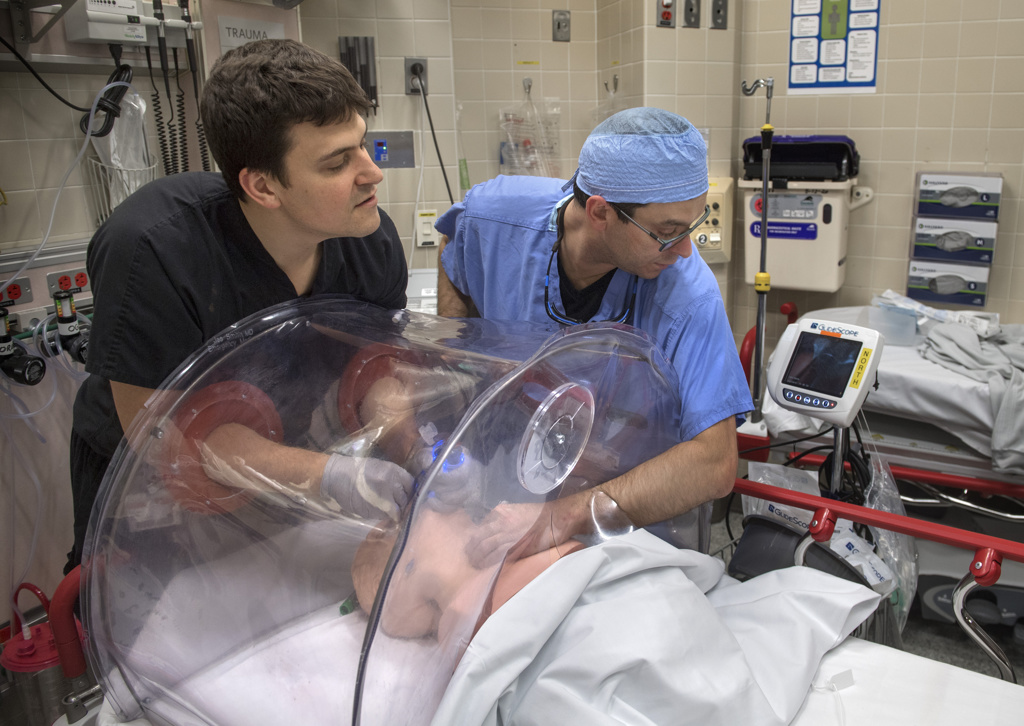
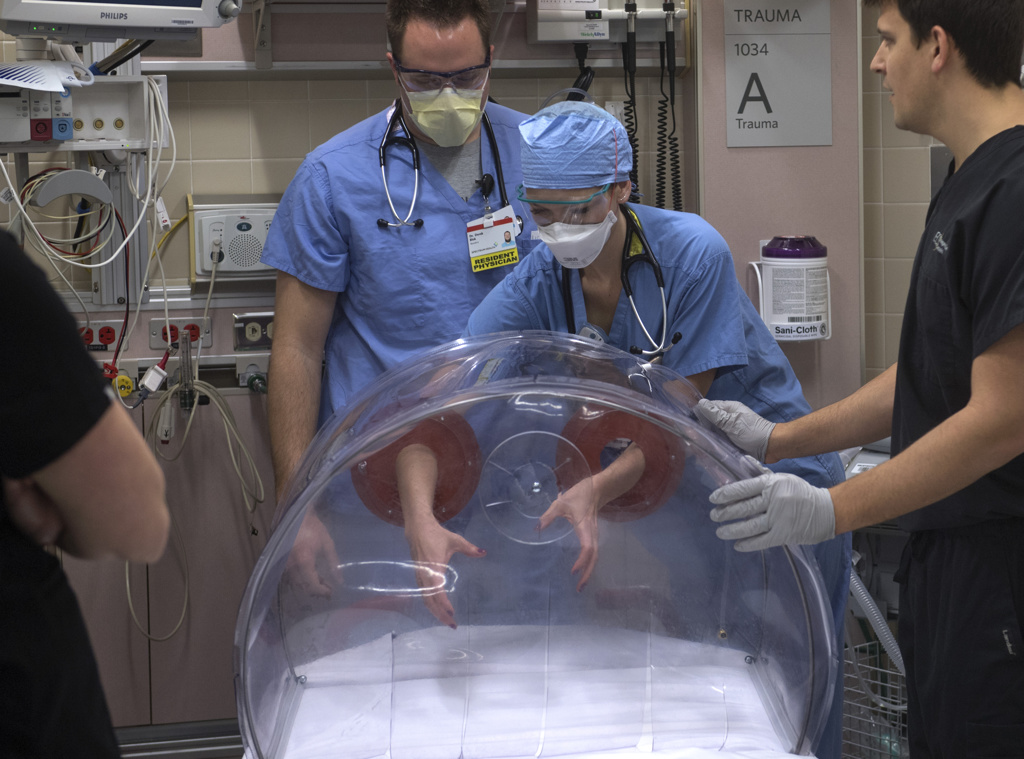

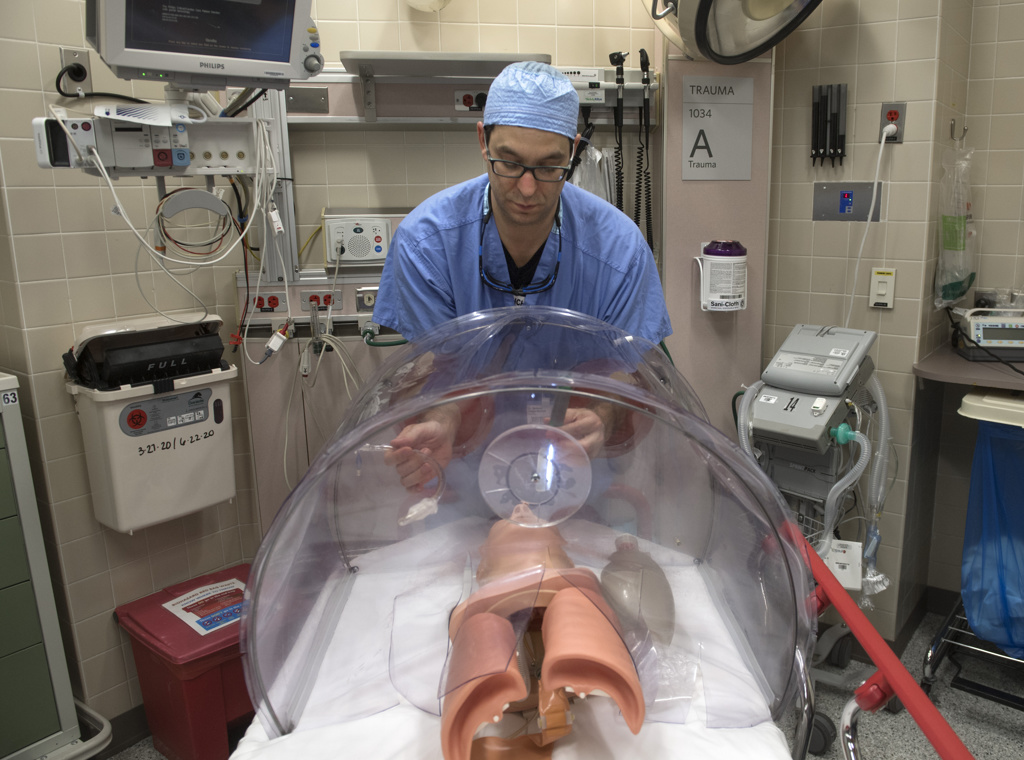
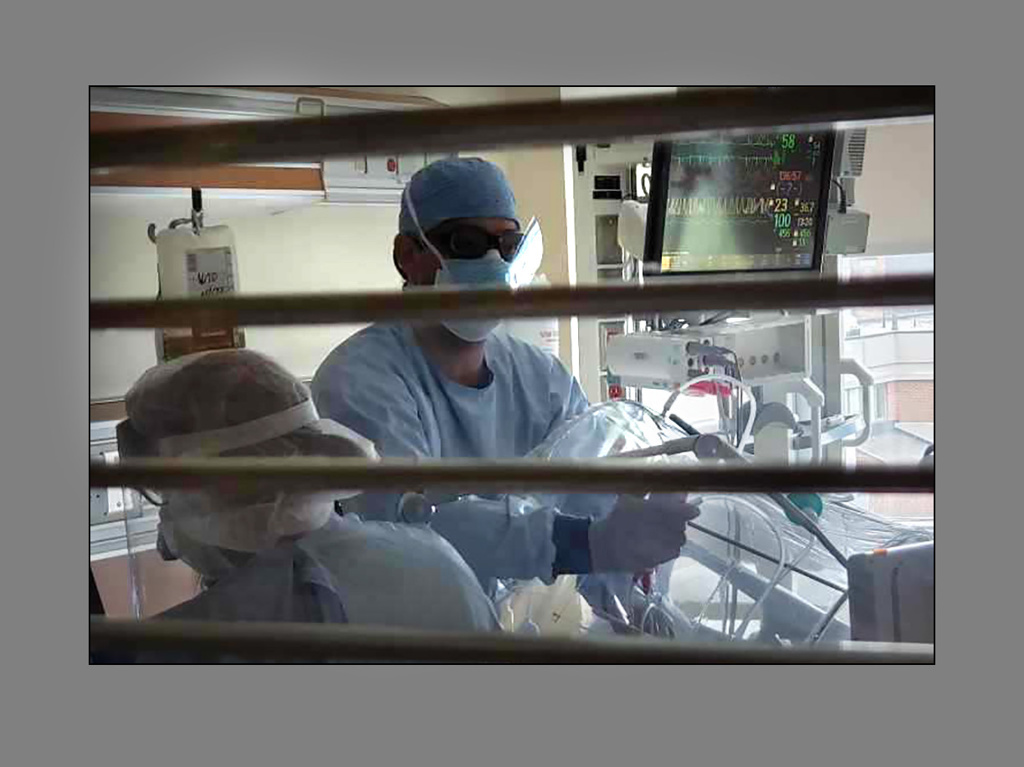

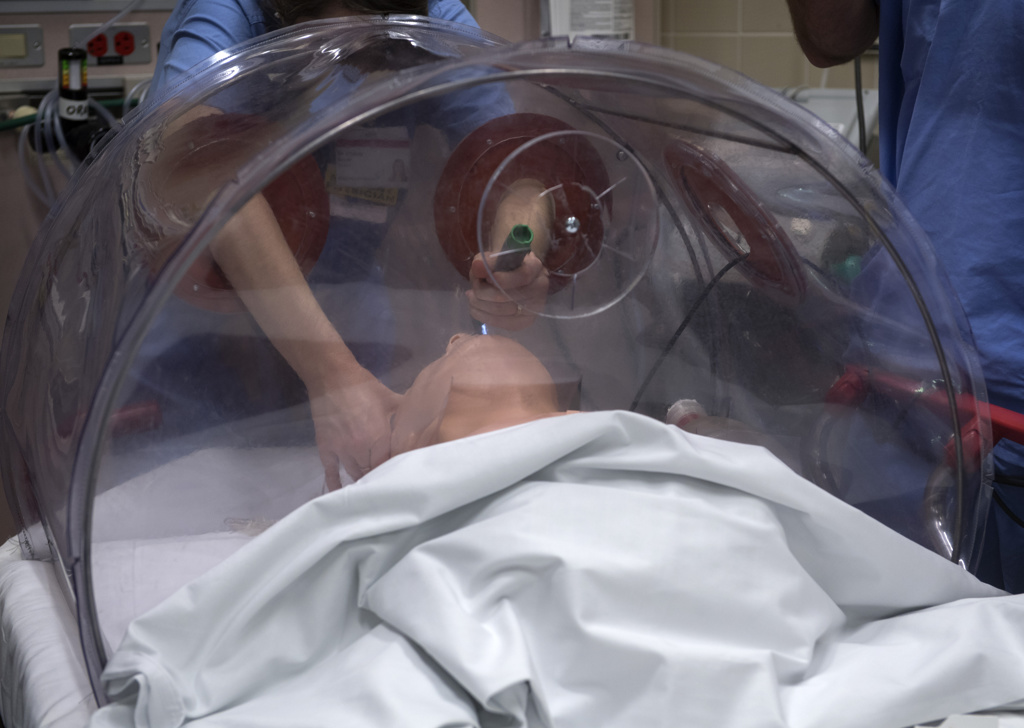
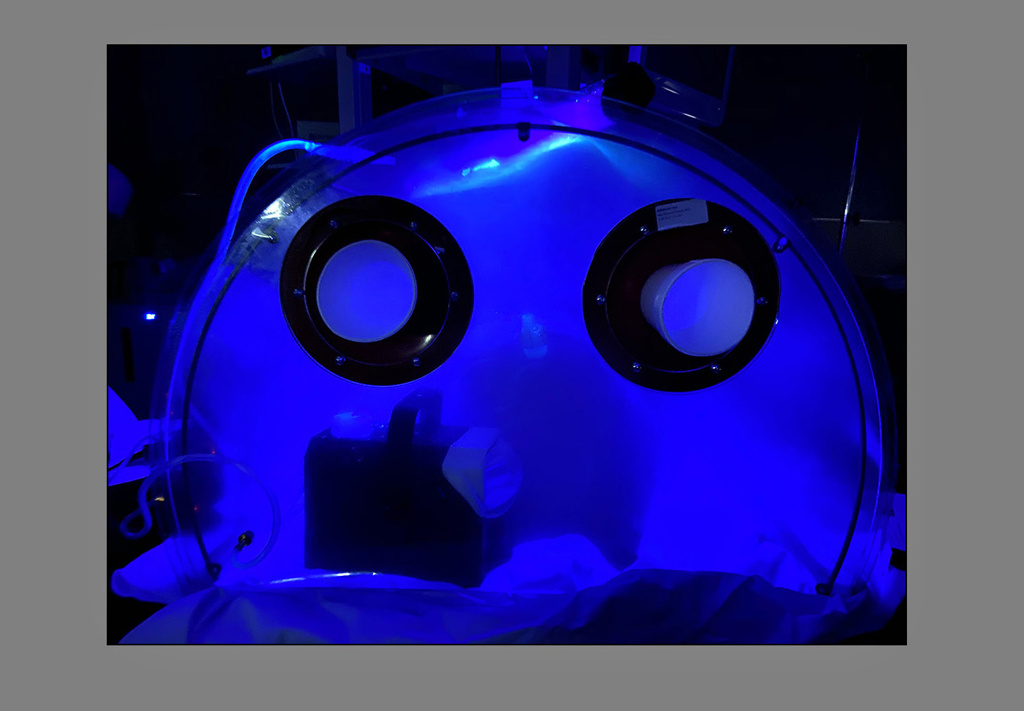
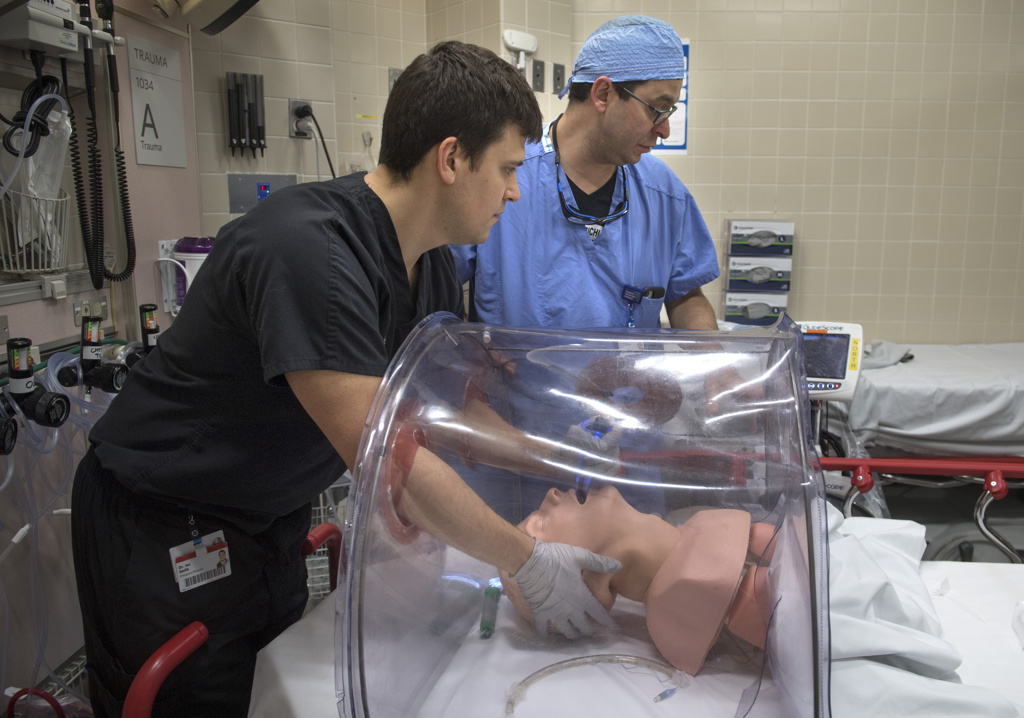
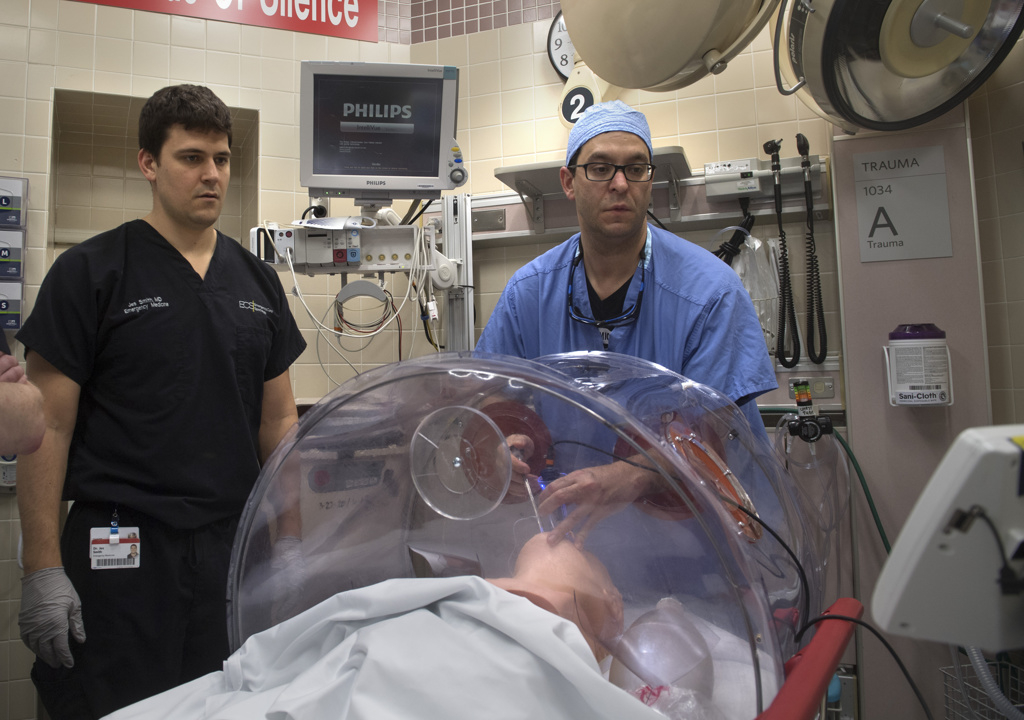

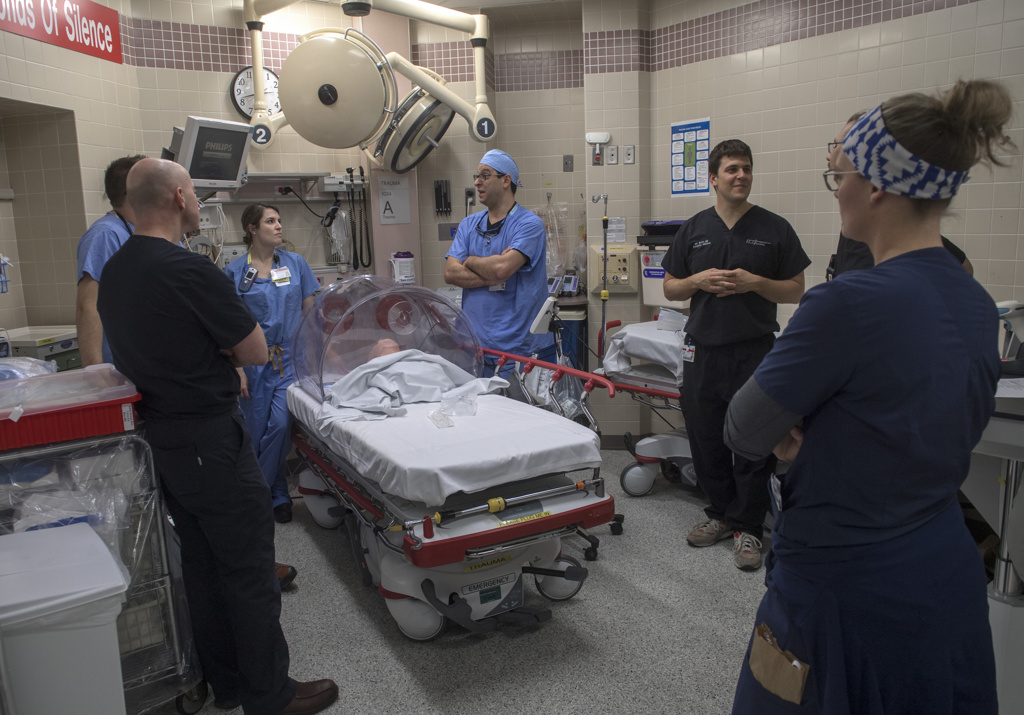
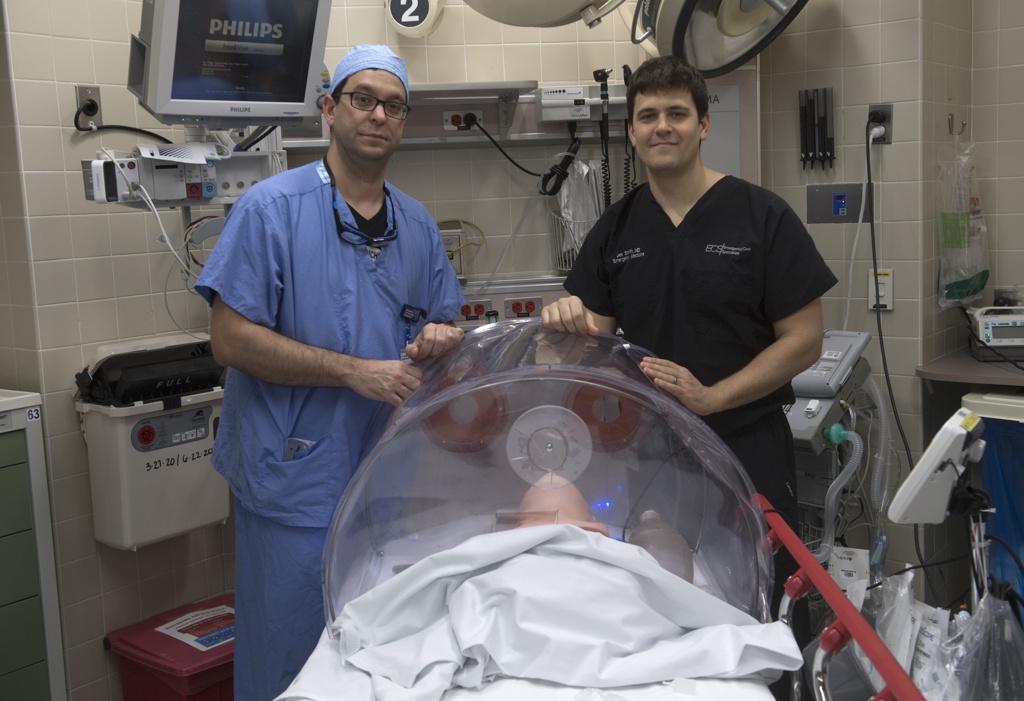
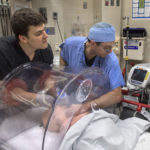
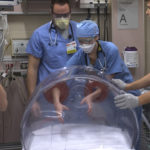
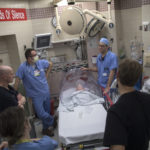
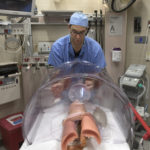
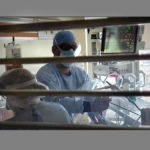
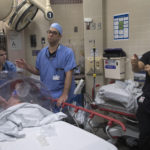
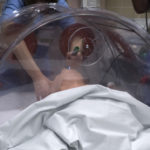








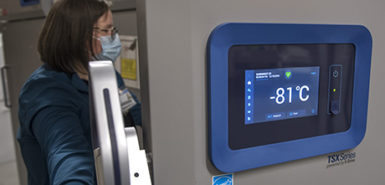 /a>
/a>
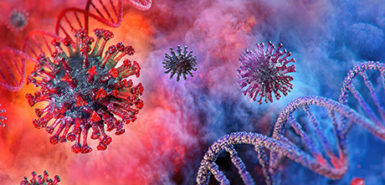 /a>
/a>
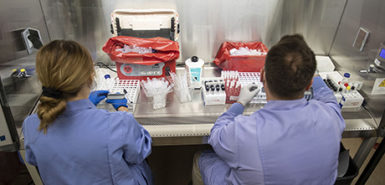 /a>
/a>